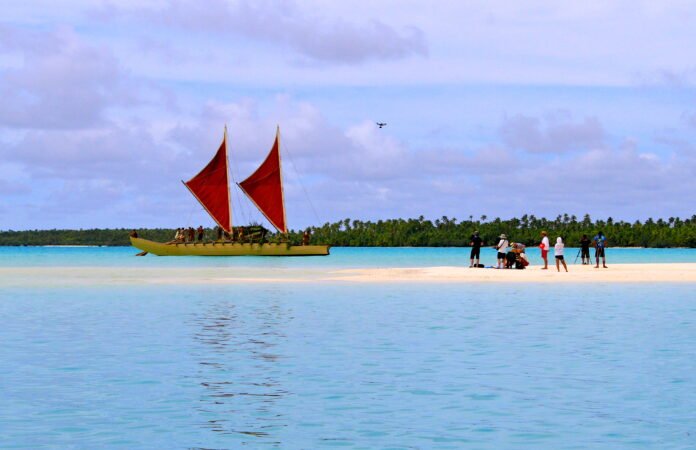In the Federated States of Micronesia (FSM), health insurance options span both public and private sectors, each offering distinct advantages and limitations. Understanding their differences and similarities is essential for residents, expats, and anyone navigating the Micronesian healthcare landscape.
Public Health Insurance in Micronesia
The public health system is spearheaded by MiCare, the FSM Government Employees’ Health Insurance Plan. Initially designed for national government workers, it has expanded to include state employees, private sector staff, and even students. MiCare offers coverage for medical, dental, vision, and prescription drugs. It is affordable, has broad eligibility, and aims to make basic healthcare accessible to all FSM residents. However, its services are primarily local, and advanced or specialized care is often limited.
FSM citizens can also access care at state-run hospitals (in Yap, Chuuk, Pohnpei, and Kosrae) for minimal fees, thanks to significant government subsidies. These hospitals offer essential services such as emergency care and maternity support but struggle with resource limitations, outdated equipment, and shortages of specialists.
The Compact of Free Association (COFA) agreement with the United States previously allowed Micronesians to access U.S. public healthcare programs such as Medicaid. However, benefits and eligibility under COFA vary and can be unreliable due to political and funding uncertainties.
Additionally, state-level health funds and public health clinics offer supplementary or preventive services, especially in remote areas. These programs serve low-income populations and focus on basic outpatient and vaccination services, but face similar issues with limited infrastructure.
Private Health Insurance in Micronesia
Private health insurance plays a crucial role, particularly for expatriates and FSM citizens seeking specialized or overseas care. International providers such as Allianz, Cigna, and GeoBlue offer high-limit, customizable plans with features like global coverage, emergency evacuation, and flexible add-ons (e.g., maternity, dental, chronic care). These are premium-priced but invaluable in a country where serious medical conditions often require treatment abroad.
Regional providers like TakeCare and NetCare offer more localized solutions. TakeCare, the largest private network in Micronesia, covers over 30,000 members and offers off-island care, dental, and pharmacy benefits. NetCare, meanwhile, provides both individual and group plans, especially across the Marianas and Micronesia.
Similarities and Key Differences
Both public and private insurance aim to reduce out-of-pocket expenses and improve access to healthcare. They may cover services like outpatient care, emergency treatment, and prescriptions. However, the main difference lies in scope and quality: public insurance focuses on affordability and universal access, while private insurance emphasizes comprehensive, customizable, and international-grade coverage.
Another key difference is access to specialized care. Public options often require overseas referrals, while private plans usually include medical evacuation and overseas treatment as standard features. Public services cater mostly to FSM citizens and residents, while private plans are also tailored for expatriates and international travelers.
Top Public Health Insurance Providers in Micronesia
The Federated States of Micronesia (FSM) operates a limited but critical public health insurance framework focused on delivering affordable healthcare to its citizens. While the options are fewer compared to larger nations, the available programs form a vital safety net, especially for those in remote island states with limited access to private health insurance or international care. Below are the top public health insurance and subsidized care options in Micronesia, along with their features, eligibility, and consumer-oriented highlights.
1. MiCare (FSM National Government Employees’ Health Insurance Plan)
- Cost: Premiums vary based on the plan type (individual, family, or group), but are generally low due to government subsidies. Contributions are typically shared between the employer and the insured.
- Coverage Features: Includes inpatient and outpatient services, prescription drugs, dental, vision, and emergency care. Covers services within FSM and off-island referrals when medically necessary.
- Eligibility: Initially for FSM national government employees and their dependents. Now extended to include state government employees, private sector workers, students, and registered FSM residents.
- Core Financial Features: Operates on a cost-sharing model, with negotiated service rates at affiliated facilities. It is financially backed by member contributions and government subsidies.
- Consumer Satisfaction Score: Moderate to high. Users appreciate the affordability and broad coverage, though there are occasional delays in off-island referrals and claim reimbursements.
- Contact: www.micareplan.fm
2. FSM State Public Hospitals’ Subsidized Care
- Cost: Extremely low fees for FSM citizens; in many cases, services are free or require minimal co-payments.
- Coverage Features: General medical care, maternity services, emergency care, and outpatient treatment provided by hospitals in Yap, Chuuk, Pohnpei, and Kosrae.
- Eligibility: Open to all FSM citizens regardless of employment status or income.
- Core Financial Features: Fully subsidized by the FSM government and supported by state-level health budgets. Operates under limited financial and material resources.
- Consumer Satisfaction Score: Moderate. While the care is affordable and universally accessible, limitations in staffing, technology, and advanced medical equipment often hinder service quality.
3. Compact of Free Association (COFA) Health Access Programs
- Cost: Free or low-cost depending on U.S. state regulations; formerly included access to Medicaid-like programs in Hawaii and other U.S. jurisdictions.
- Coverage Features: Varies by U.S. territory or state; includes basic medical care, sometimes specialist and emergency services, when residing in the U.S. under COFA terms.
- Eligibility: FSM citizens legally residing in the United States or its territories under COFA.
- Core Financial Features: Funded through U.S. federal health programs; subject to changes in U.S. healthcare legislation and budget allocations.
- Consumer Satisfaction Score: Variable. While beneficial when available, COFA program benefits can be inconsistent and are often subject to policy changes and eligibility reviews.
4. Public Health Clinics and Dispensaries
- Cost: Free or very low-cost services provided by state and local health departments.
- Coverage Features: Preventive care, vaccinations, maternal and child health services, health education, and minor outpatient procedures.
- Eligibility: Open to all FSM citizens and often supported by global health partnerships such as WHO and UNICEF.
- Core Financial Features: Government-funded, sometimes with international aid and NGO support.
- Consumer Satisfaction Score: Moderate. Highly valued in rural or outer islands, but facilities often lack the capacity to provide advanced or specialized care.
5. State-Level Health Funds and Community Programs
- Cost: Low or no cost depending on the program and state.
- Coverage Features: Supplementary aid for low-income individuals, transportation for off-island care, emergency referrals, and support for non-communicable disease management.
- Eligibility: Varies by state; typically available to vulnerable and low-income residents.
- Core Financial Features: Funded through state budgets and supplemented by donor agencies. Limited in scope due to fiscal constraints.
- Consumer Satisfaction Score: Moderate to low. These programs are appreciated where available, but underfunding and administrative bottlenecks often impact service Top Private Health Insurance Providers in Micronesia
Private health insurance in the Federated States of Micronesia (FSM) plays a vital role in supplementing the limited capacity of the public healthcare system. These providers cater to expatriates, professionals, and locals who seek access to more comprehensive services, including international coverage, advanced medical treatment, and emergency evacuation. Below are the top private health insurance providers operating in or serving Micronesia, along with a breakdown of their offerings, eligibility, financial model, and user satisfaction.
1. Allianz Worldwide Care
- Cost: Premiums start from approximately $100–$500+ per month, depending on the age of the insured, selected coverage level, and additional benefits like maternity or dental.
- Coverage Features: Offers international health coverage including inpatient and outpatient services, medical evacuation, chronic condition management, and optional add-ons like vision and dental care.
- Eligibility: Open to all, including expats, residents, and travelers in Micronesia.
- Core Financial Features: Premium-based system with customizable annual deductibles and co-pay options. High annual limits (up to $5 million).
- Consumer Satisfaction Score: High. Known for strong customer service, fast claims processing, and global network access.
- Website: www.allianzcare.com
2. Cigna Global
- Cost: Monthly premiums range from $80–$400+, depending on plan tier and optional benefits like outpatient, dental, or vision care.
- Coverage Features: Comprehensive global coverage, including hospitalization, specialist consultations, maternity care, and mental health support. Optional international outpatient care and evacuation included.
- Eligibility: Available to individuals, families, and corporate clients residing or working in Micronesia.
- Core Financial Features: Fully customizable plans with variable deductibles, modular benefits, and premium-based pricing. Annual coverage limits can be adjusted.
- Consumer Satisfaction Score: Very high. Customers report satisfaction with claim responsiveness, telehealth support, and flexibility.
- Website: www.cignaglobal.com
3. GeoBlue
- Cost: Typically ranges from $120–$600 monthly, with plan differences based on U.S.-centric coverage and evacuation services.
- Coverage Features: Especially suited for U.S. citizens abroad. Includes international emergency care, inpatient and outpatient services, and medical evacuation.
- Eligibility: Primarily for U.S. citizens or U.S.-based employers covering employees in Micronesia.
- Core Financial Features: Premium-based model. Many plans offer direct billing, which is beneficial in emergencies or remote locations.
- Consumer Satisfaction Score: High. Praised for its ease of use, U.S. hospital access, and reliable evacuation services.
- Website: www.geobluetravelinsurance.com
4. TakeCare Insurance Company
- Cost: Premiums are regionally competitive, averaging $50–$200 per month depending on group or individual enrollment.
- Coverage Features: Offers medical, dental, pharmacy, and off-island referral care. Operates the largest health network in Micronesia, with services on Guam, CNMI, Palau, and FSM.
- Eligibility: Open to both private sector employees and government workers; also accepts individual enrollees.
- Core Financial Features: Premium contributions may be employer- or individually funded. Offers co-payment plans, capped fees, and negotiated rates with affiliated providers.
- Consumer Satisfaction Score: Moderate to high. Widely trusted in the region for accessible care and a strong provider network.
- Website: www.takecareasia.com
5. NetCare Life and Health Insurance
- Cost: Mid-range premiums between $75–$250 monthly, depending on age, coverage scope, and region.
- Coverage Features: Offers both group and individual health and life insurance plans. Coverage includes general medical, dental, specialist visits, and evacuation support.
- Eligibility: Available to residents and businesses across Micronesia and the Mariana Islands.
- Core Financial Features: Premium-based, often used by employers for workforce coverage. Offers negotiated provider pricing and regional healthcare partnerships.
- Consumer Satisfaction Score: Moderate. Customers value local responsiveness, but advanced international care may be limited compared to global providers.
- Website: www.netcarelifeandhealth.com
READ MORE: Private and public health insurance of Solomon Islands (Make informed choices)


